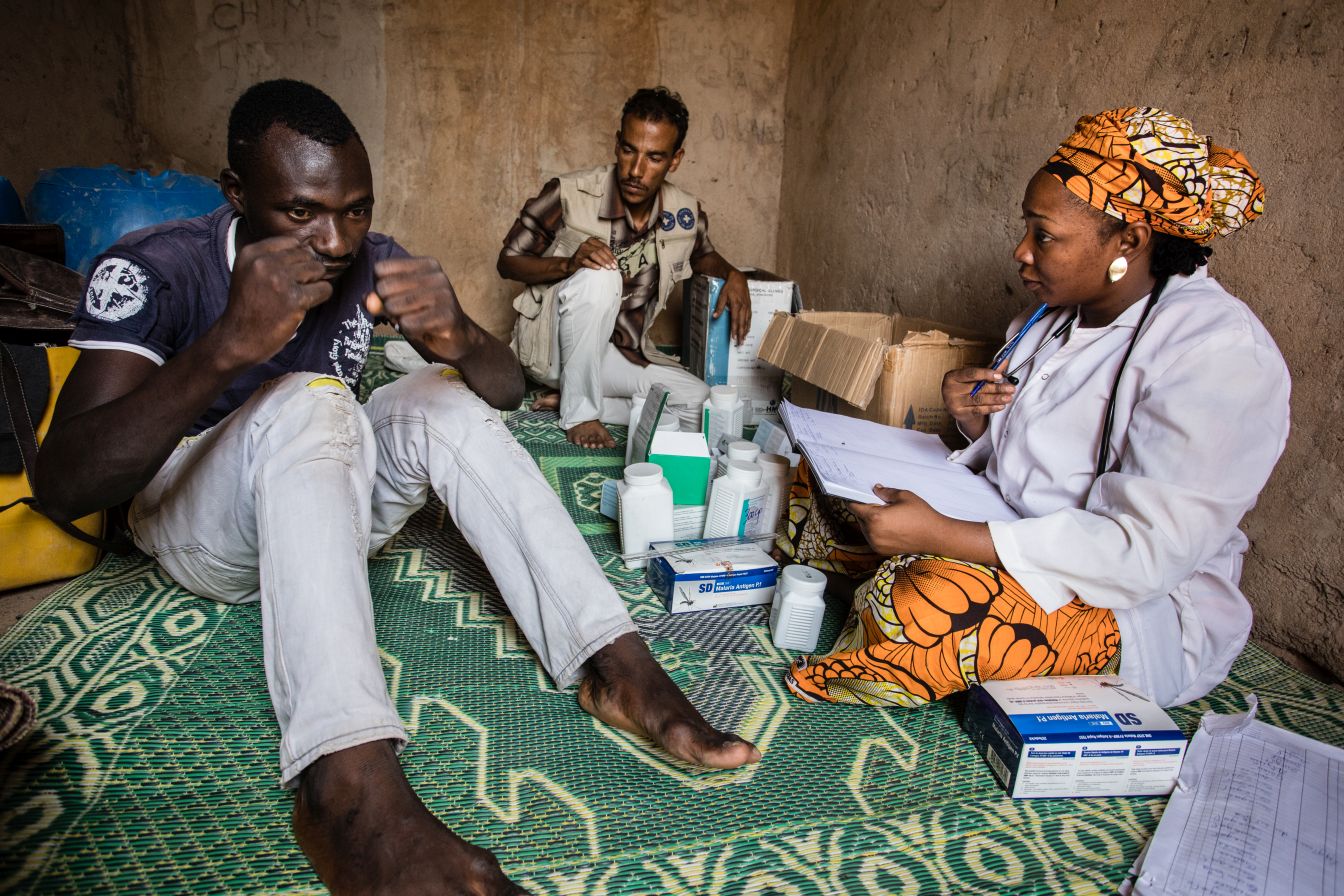In this guest blog, Johannes Claes, Reporting and Advocacy Officer for Doctors of the World’s Niger Mission, tells us about its response to the relocation of vulnerable groups in Niger, awarded funding (alert 16) through the Migration Emergency Response Fund (MERF).
I will never forget that day. Doctors of the World’s clinic had just been open for a few days. A man was standing on top of the water tower, threatening to throw himself off.
His case was not isolated. Traumatised from the violence and suffering they encountered through their trip in North Africa and scarred by what they have lived in Libya. This is the reality of many Sudanese asylum seekers who have arrived in the city of Agadez, northern Niger.
I reached the location, a new camp built on arid land, some 13 km outside of the city. Our psychologists had managed to talk him out of it. He was laying on the floor in shock. Eventually, we managed to refer him on to a clinic where he could receive the psychological and therapeutic support he needed.
Since the autumn of 2017, Agadez has been exposed to an influx of mostly Sudanese asylum seekers from Libya. While the initial inflow had been managed by the communal and regional authorities, this July the situation had escalated: the capacity and willingness of local authorities were no longer there as tensions between the asylum seekers and host community were on the rise.
The Migration Emergency Response Fund was alerted, and Doctors of the World was able to scale up its work in Agadez. The aim was to provide emergency medical and psychological care to the affected population and to improve their living conditions.
Asylum seekers were going to be transferred to a new area outside of the city by local authorities.
They had previously resided either inside the city, with low access to basic services such as water and latrines, or in shelters throughout the city. Both groups had significant needs in terms of access to healthcare and psychological support.
There was a strong need for support, before, during, and after the move.
Thanks to the MERF, we set up mobile clinics to provide support where asylum seekers needed us the most. Many women were in need of prenatal consultations, and sanitary support had to be provided throughout. Social workers and psychologists provided support to many asylum seekers traumatised from what they had faced at home and along the road.
Most importantly, with the MERF, Doctors of the World were able to train people and work closely with local actors to create procedures, standards, and a system to refer asylum seekers onto further services for both physical and mental support.
Together with the infrastructures built along the new camp, these systems are there to stay.
While work still has to be done, in particular around mental health support due to the trauma experienced in Libya, the MERF funding was fundamental in setting the basis for the provision of healthcare to this population.
The clinic in the camp is now always busy, filled with women and children, finally able to access the healthcare they so desperately needed.
Read more about the Migration Emergency Response Fund.

